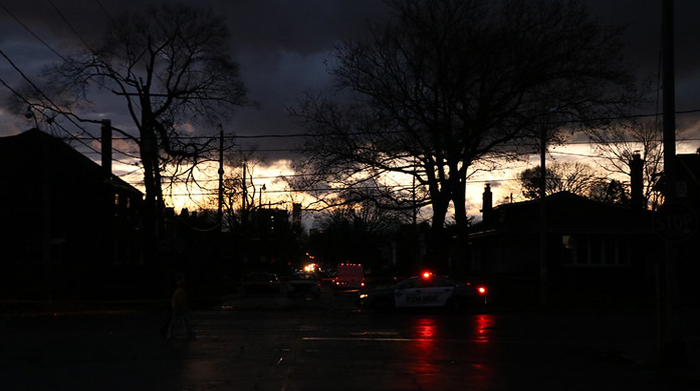NERC Says 2023 Will Feature More Summer Blackouts

Image courtesy of Can Pac Swire under Attribution-NonCommercial 2.0 Generic License, resized to 700 x 391 pixels.
Last month, NERC officials offered a bleak assessment of the U.S. power grid – apparently, most of us will be at risk of seeing more summer blackouts this year compared to last year. The primary reasons for this are increasing demand and uncertainty around the performance of renewable energy sources.
Why More Summer Blackouts are in the Forecast
The sad reality of this assessment is that it does not appear to be a one-off issue. According to NERC, the risk profile of the grid has been in a steady state of decline for the past 5 years. The good news is that the risk profile has not worsened for normal load conditions, but this will get flipped upside-down during periods of extreme heat – especially in the west and the Midwest, Texas, and the New England region.
The specific reasons for the bleak assessment vary depending on the region. In the Midcontinent ISO area and the Southwest Power Pool, wind generator performance will be a key factor in avoiding summer blackouts during extreme conditions. In Texas, “dispatchable generation may not be sufficient.” In the Western Interconnection, the performance of solar power during the late afternoon and evening hours is the key risk factor.
Exasperating the fear is the fact that supply chain disruptions and coal delivery risks continue to linger and will delay recovery efforts. In addition, new power plant environmental rules will add further complexity. This is true even in areas that do not face an elevated risk of summer black outs (i.e., PJM, New York ISO, and SERC which serves some or all of Tennessee, Alabama, Georgia, Kentucky, Missouri, and Mississippi).
As always, no matter where you operate, emergency preparedness against summer blackouts (among other things) is crucial. While this is always the case, it seems like some of us may be in for a rough ride this summer, and therefore it takes on even greater meaning now compared to prior years and decades.



